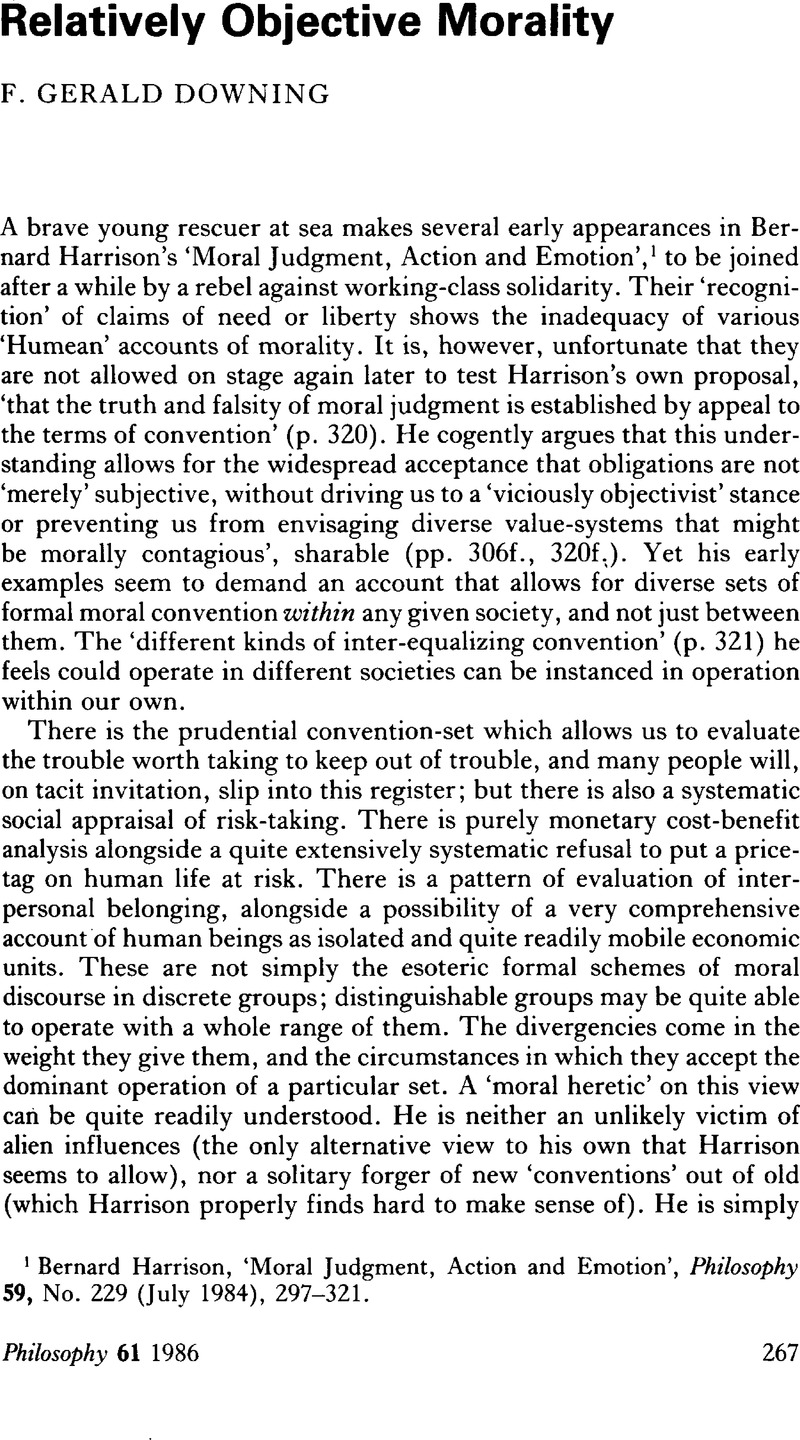No CrossRef data available.
Published online by Cambridge University Press: 30 January 2009

1 Harrison, Bernard, ‘Moral Judgment, Action and Emotion’, Philosophy 59, No. 229 (07 1984), 297–321.CrossRefGoogle Scholar
2 Downing, F. Gerald, ‘Ways of Deriving “Ought” from “Is’’, Philosophical Quarterly 22, No. 88 (07 1972), 234–247.CrossRefGoogle Scholar Though, like Harrison, , I found useful Julius Kovesi, Moral Notions (London: Routledge and Kegan Paul, 1967), I was rather more engaged with John R. Searle, Speech Acts (Cambridge University Press, 1969), and his preferred term ‘institution’.Google Scholar
3 Whiteley, C. H., ‘The Justification of Morality’, Philosophy 57, No. 222 (10 1982), 435–451.CrossRefGoogle Scholar But I would note also Iris, Murdoch, ‘Vision and Choice in Morality’, in Christian Ethics and Contemporary Philosophy, Ramsey, Ian T. (ed.) (London: SCM Press 1966), 195–218, protesting against philosophers' attempts to homogenize morality. There are yet more complicating factors that need to be taken into account, not least the tendency to have one set of conventions for polite conversation and other sets for use. Hypocrisy, weakness and wickedness affect our perceptions of the moral ‘field’, and not just our actions.Google Scholar